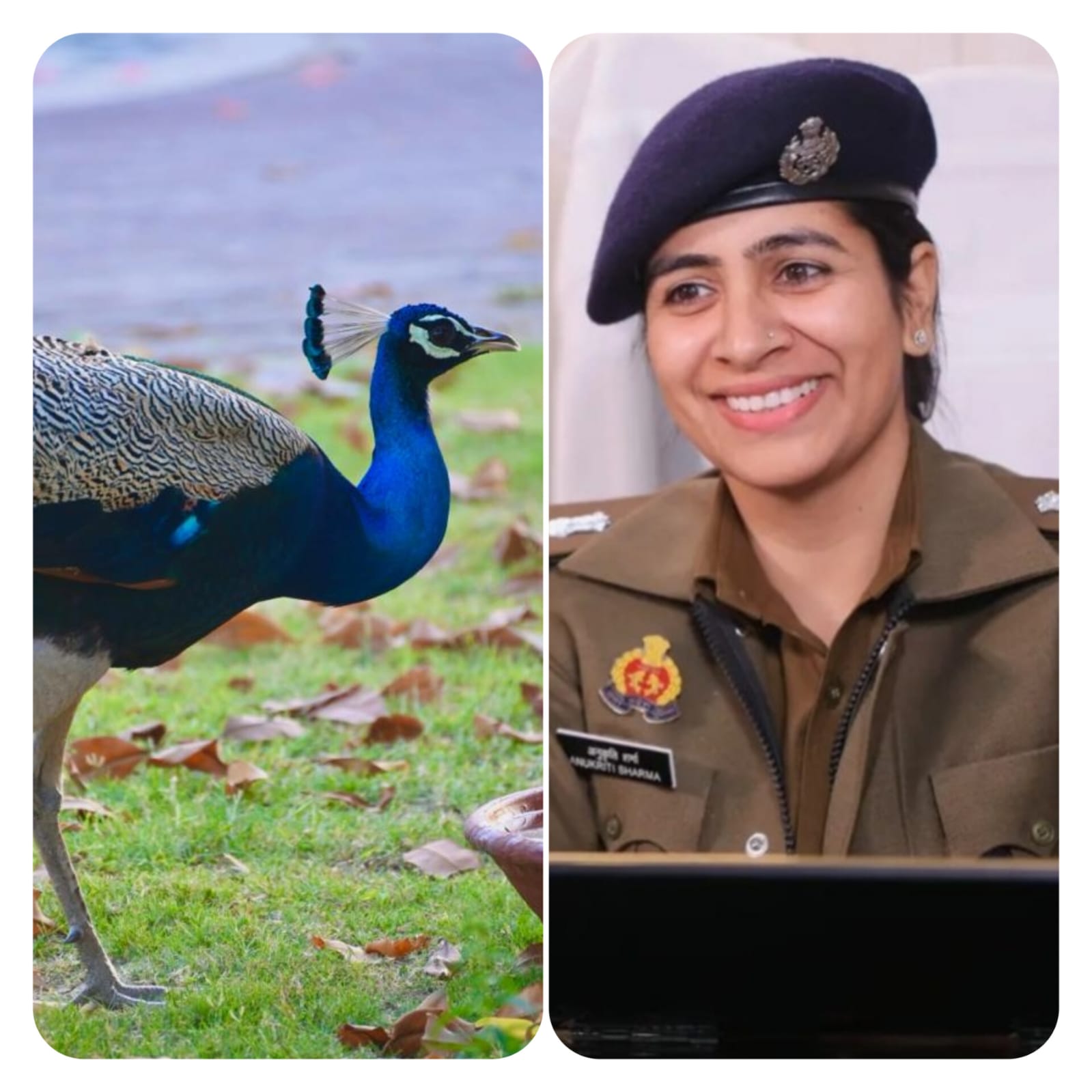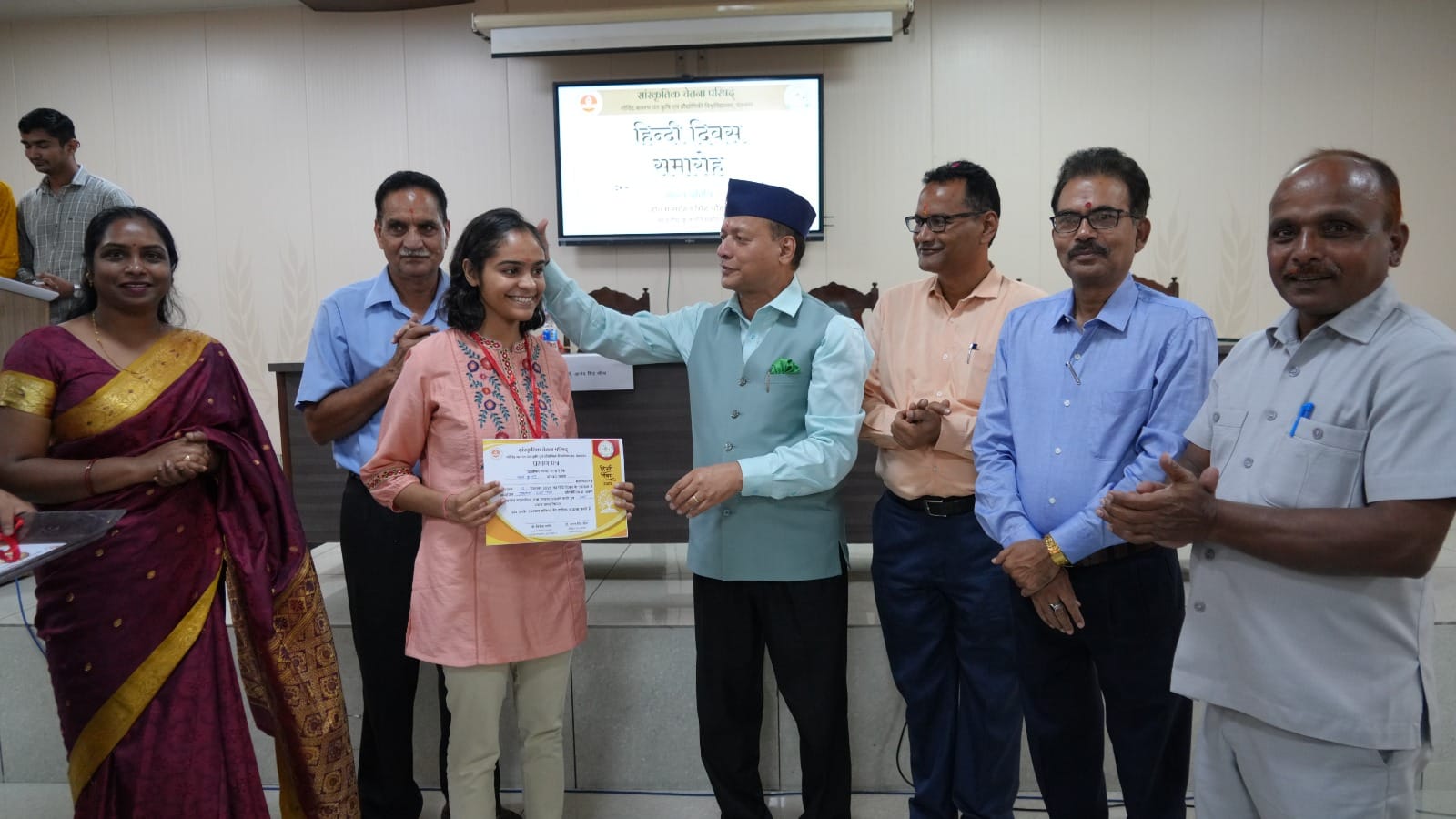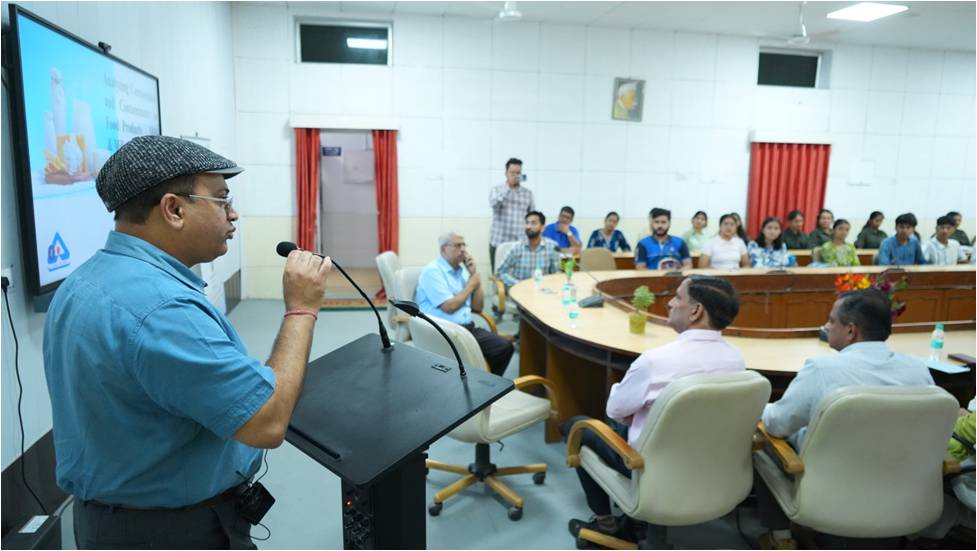Anukriti Sharma’s dedication to environmental preservation brings a village to life, turning a neglected pond into a haven for wildlife enthusiasts.
Himalaya Harbinger, National bureau.
Amid the pressing responsibilities of her role as an IPS officer, Anukriti Sharma, a 2020-batch officer, has managed to nurture her deep-seated love for birdwatching and conservation. With a passion that transcends her official duties, she has championed the cause of protecting India’s natural heritage, drawing local residents into her mission and creating a unique model for community-driven environmental restoration.

Anukriti’s passion for conservation began well before her prestigious journey to the Indian Police Service. After completing research in the United States, she felt a strong calling to return to her homeland. Leaving behind prospects abroad, she returned to India, determined to join the civil services and use her position to safeguard its natural beauty. Not only a bird lover, Anukriti has authored books on avian conservation and remains an ardent protector of all forms of wildlife.

In April, her public outreach program brought her to the quiet village of Kashipur, a remote area in Sambhal of Uttar Pradesh, where she is posted as Additional Superintendent of Police (ASP). Here, she found a scenic lake choked with plastic and pollutants, a condition that endangered its Indian softshell turtle inhabitants. Anukriti immediately saw the potential for rejuvenation and began planning for a cleanup drive, aiming to restore the lake’s ecosystem by World Environment Day on June 5th.

On May 21, after the local elections, Anukriti held a public meeting to address police matters but took the opportunity to shift the conversation toward environmental action. She spoke about the turtles’ cultural and ecological significance, highlighting them as symbols of Lord Vishnu. Recognizing the villagers’ financial concerns, she proposed transforming the lake into a natural tourism site that could provide an income stream. Inspired by her vision, villagers agreed to participate in a joint cleanup effort scheduled for May 24.
When the day arrived, the lake area buzzed with activity as villagers and local police officers worked side by side. “Seeing the locals come together to save our natural heritage was inspiring,” Anukriti recalls , while talking to Himalaya Harbinger. To ensure the project’s success, she enlisted the support of the Namami Gange team, who offered technical guidance on waste removal.

Once the cleanup was complete, Anukriti approached the village Pradhan for funds to beautify the lake area, which he approved. Together, they installed educational posters around the lake, raising awareness of the turtles’ endangered status. Anukriti further engaged the village children through a painting competition on the theme of conservation, awarding prizes to the top artists. “Involving children helps to instill a lifelong respect for nature,” she shared.
The initiative not only transformed the lake into a beautiful, thriving habitat but also strengthened the bond between the police and the community. Anukriti noted that nearly every household now has the contact numbers of key police officers, fostering a strong sense of trust and accessibility.

Local resident Ram Singh lauded her efforts, saying, “IPS Madam has shown us the importance of our lake and our heritage. She has inspired us to take action. I urge others to join in and protect our environment.”

With the lake revitalized and attracting wildlife enthusiasts, Kashipur stands as a remarkable example to the power of collective action and the positive impact of a committed human. Anukriti’s journey underscores the potential for harmony between public service and environmental stewardship, leaving an indelible impact on the community she serves.
Meanwhile, Rajiv Nayan, an environmentalist said, “Officer Anukriti’s work has set a remarkable example for conservation efforts in rural areas. By involving the locals in the revival of Kashipur’s lake and its precious turtle population, she has shown that preserving our wildlife is not just an ecological duty but a community responsibility. It’s essential to understand that the conservation of birds and other wildlife creates a balanced ecosystem that benefits us all. With every species we protect, we help maintain the natural processes that purify our air, our water, and our soil. I hope more initiatives like hers inspire others across India.”
Pran Chadha, a Wildlife Conservationist said, “Anukriti Sharma’s dedication is a reminder of the deep connection between human activity and nature. Her commitment goes beyond mere preservation—it’s about reestablishing a lost harmony with our environment. Birds, for instance, play crucial roles as pollinators, seed dispersers, and pest controllers; their presence is a sign of a healthy ecosystem. When we lose species, we lose these invaluable services. Anukriti’s efforts in Kashipur serve as a blueprint for conserving natural habitats, especially in places often overlooked. Her work is a call to action, and I urge everyone to take responsibility for the environment around them.”


Truly gifted by nature, Anukriti Sharma’s life seems blessed by divine will, with daily visits from three majestic peacocks that grace her official residence in Sambhal. These elegant birds, so trusting and unafraid, have formed an extraordinary bond with her, often eating right from her hand in a rare display of mutual harmony. Her compound has become a sanctuary for other avian visitors as well, attracting numerous bird species that seem instinctively drawn to her presence. This unique affinity reflects not only her deep love for wildlife but also a natural, almost sacred, connection she shares with the feathered creatures around her.










